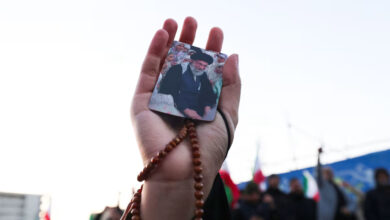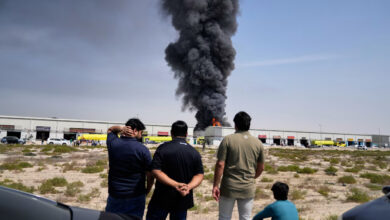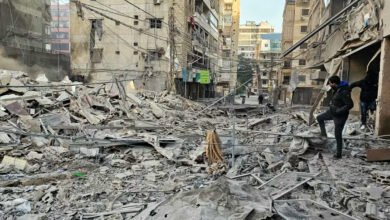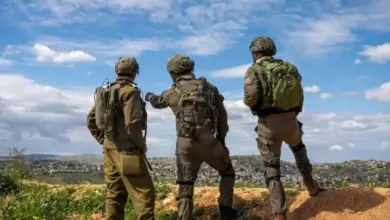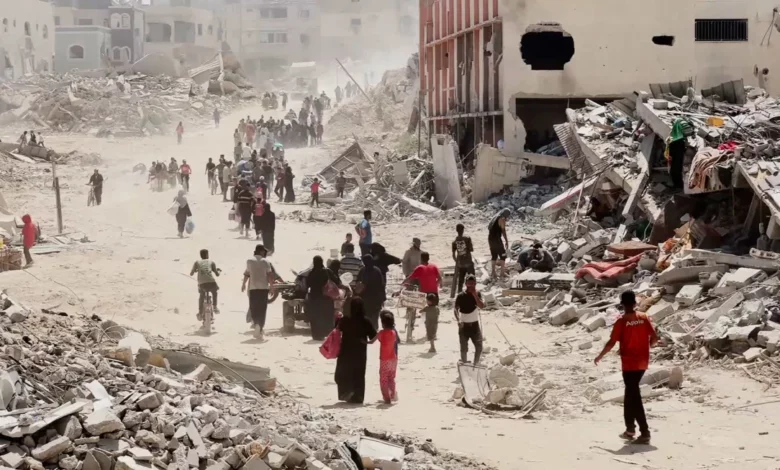
In the neighbourhood of Bani Suheila, a journalist working for CNN filmed families journeying home by foot, while others squeezed into cars and donkey carts, making their way down dusty roads lined with flattened buildings and debris.
“We heard that the Israelis had withdrawn, and we are walking to see what happened,” one resident, Najm Abu Assi, said.
The Israeli military withdrew from eastern Khan Younis more than a week after an incursion and heavy bombardment that killed dozens of Palestinians and forced thousands of others to flee.
Israeli forces had issued an evacuation order in parts of Khan Younis on July 22, saying it was “about to forcefully operate against the terrorist organizations” that it said were firing rockets from neighborhoods south of the city.
The directive resulted in what international aid groups said was a “mass displacement.” More than 150,000 people fled, according to United Nations estimates, many on foot or on donkey carts, leaving virtually all their possessions behind.
Ibrahim Muhammad Abu Adwan, 60, left Bani Suheila with his family in early July after they saw an Israeli tank near their house, and he received an evacuation order from the Israeli authorities on his cell phone.
“We did not get the chance to take our clothes or take anything. We went out with just ourselves and the clothes that were on us,” he said, gesturing to the shirt he was wearing.
Adwan returned to the neighborhood to find his home had been destroyed. He was told it had been hit last Wednesday.
“The destruction is massive,” he said. “Look at my neighbors. The… whole neighborhood is destroyed. They destroyed an entire neighborhood.”
Prior to Hamas’ October 7 attack on Israel, Khan Younis – Gaza’s second-largest city – had been home to more than 400,000 people, according to Gaza’s Ministry of Interior.
In the early days of the war, it became a haven for thousands of civilians who were fleeing Israeli military operations in the north of Gaza. But when Israeli forces began an assault on Khan Younis in early December, those living there were forced to seek refuge further south.
Another Bani Suheila resident, Um Yahya, said her family had returned to see if any of their belongings were left. “At first, our house was destroyed, and then even the tents were gone… We’re going to check our stuff to see if any of our stuff is left,” she said.
Some families were seen setting up tents amid the ruins, with dust filling the air. A group of men could be seen carrying a body bag.
Abed Odeh, who had fled to eastern Khan Younis from Gaza City and remained in the area in defiance of the evacuation order, told CNN on Tuesday that there was widespread destruction. “We see the emergency services in the street going to houses and civil defense teams evacuating the dead from inside houses,” he said.
Teams working for Gaza’s civil defense directorate recovered 42 bodies in the Bani Suheila area after the Israeli military withdrawal, the organization said on Tuesday.
The Palestinian Ministry of Health in Gaza told CNN that, as of midday (5 a.m. ET) on Tuesday, it had recorded the deaths of 290 Palestinians in eastern Khan Younis and the wounding of more than 700 others since July 22. The number was expected to rise, it said.
The Israel Defense Forces (IDF) confirmed Monday that it had “completed their operational activity” in Khan Younis, saying troops had killed Hamas militants and destroyed tunnels and weapons sites in the area.
“Over the past week, the troops have eliminated over 150 terrorists, dismantled terror tunnels, weapons storage facilities, and terrorist infrastructure, and located weapons,” the IDF said in a statement, also noting that it had retrieved from Khan Younis the bodies of five hostages and brought them back to Israel.
On Monday, medical charity Médecins Sans Frontières called on “all warring parties” to ensure safe access to the Nasser Hospital in Khan Younis – the largest remaining medical facility in southern Gaza. The hospital was providing care for an estimated 550 patients, including newborns and pregnant women, it said.

